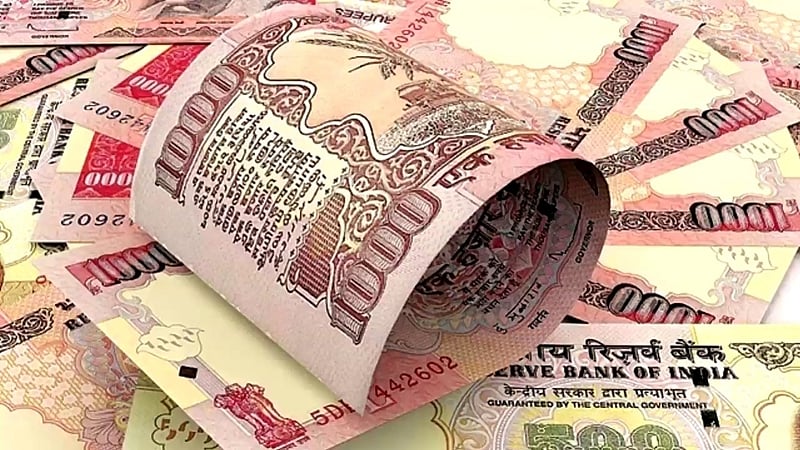Two important announcements last week, which were almost back-to-back, indicate that the war against black money is not yet over. Efforts are still on to bring it out. However, there have been some ambiguities that have caused modification in one of the notifications and continued conjecture about the second. These refer to the forex remittance scheme for individuals and the supposed demonetization of the Rs2,000 note.

Let’s look at them sequentially. Under the liberalised remittance scheme, one can take out $250,000 per annum without any permission. These amounts are normally for travel (50% in FY23), 15% for relatives maintenance, 13% studies and 11% gifts. In FY23, around $27 billion was claimed under this scheme. The official announcement was that expenditures through credit cards will warrant a 20 per cent tax collection at source as would be the case with all other payments except education and health. The lacuna in the announcement was that it was not clarified as to how banks would identify payments made for studies or stay, which had differential status.
There are two issues here. The first is that keeping credit cards out of the ambit of the $250,000 was a major anomaly as there was no justification for it. Any forex expenditure on a card has to be accounted for under the limit. There is an argument that often one spends money for the company when they travel out. Regulation could have always specified that companies can have corporate credit cards issued, which would be identified with the company rather than the individual. This is how the billing is done anyway as these cards are linked to the company though the individual’s name is mentioned.
The second is a broader issue of tax collection at source. It was hard to argue such a levy even earlier when a TCS of 5 per cent for expenses beyond Rs7 lakh in forex was introduced. The reason is simple. A tax collected at source can be claimed when filing returns and hence is not an income for the government. As there are time lags involved in the deduction and claim, there would be a loss of interest for the customer, which makes living difficult. However, the logic given here is that there is a trail of such expenses and the income tax department can pick up heavy spending. The logic is, however, questionable. As all payments are made through the banking channels anyway either as a transfer or card payment, knowledge of large payments is identifiable and can always be reported in form 26AS just as it is done for purchases of mutual funds. TCS is a very convoluted attempt to discover something that can automatically be discerned through the digitization process in place.

The revised notification says that credit card payments beyond Rs7 lakh will be charged the TCS. Can this really be tracked by the system if one uses multiple cards? Asking banks to report large payments is much simpler and can be found by a simple algorithm rather than going through the process of TCS. Tour packages are still subject to 20 per cent TCS, which is out of place as there is anyway an audit trail as PAN cards are a necessary proof to be provided. However, it seems that this inconvenience has to be lived with.
The withdrawal of the Rs2,000 note has created confusion because of the ambivalence exuded by putting a date of September 30 as the cut-off for exchanging or depositing the notes while also saying that it continues to be legal tender. The rather contradictory nature of these statements has created uncertainty in the minds of citizens. Besides, banks are not on the same page when it comes to acceptance of notes for exchange with some insisting on identity papers and others not doing the same. As the official stance is that it is part of the clean notes policy and not demonetization, there is no reason to ask for identity papers. However, after the demonetization episode of 2016-17 no one wants to take a chance and hence this has led to considerable apprehension.
The basic issue is that despite all the efforts made to migrate people to the digital mode, there is demand for currency. Total currency in the system is around Rs34.5 lakh crore and increases by Rs2.5-3 lakh crore every year. High denomination notes are held for several reasons. Individuals hold it for precautionary purposes such as health emergencies. Land and jewellery are still traded in currency as is the case with the grey currency market. Elections involve a lot of currency transactions both in terms of wooing voters and escaping the attention of the Election Commission. This being the case, the quest to hold on to currency will remain and with the Rs2,000 note being banished, there will be a tendency to switch to Rs500 notes as the purpose for holding will never change.
While it has not been overtly stated that the removal of the Rs2,000 note is linked with black money tracking, the fact that there is an end point for exchanging the same indicates the intent. Interestingly, it has been stated that the Reserve Bank of India had stopped printing such notes in 2018-19 and that the volume of such currency has come down to Rs3.6 lakh crore this year. If they were being withdrawn in the normal course, having such an announcement does lead to formation of conjectures.
Quite clearly, the establishment is still convinced that there is a lot of black money that needs to be weeded out. However, this also means that we need to harness technology in a more effective way to track the same, which will be less intrusive than increasing the living costs of citizens.
Madan Sabnavis is Chief Economist, Bank of Baroda, and author of ‘Lockdown or economic destruction?’ Views are personal




.jpg)


